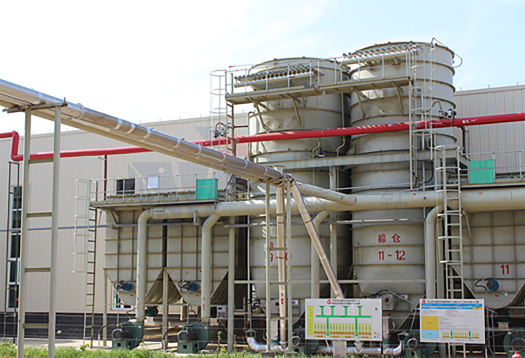
Nov . 09, 2024 02:16 Back to list
Exploring the Properties and Applications of HEC Cellulose in Modern Industries
The Versatility and Applications of HEC Cellulose
Hydroxyethyl cellulose (HEC) is a water-soluble polymer derived from cellulose, a natural polymer sourced from plant cell walls. As a modified cellulose ether, HEC has gained prominence in various industries due to its unique properties and versatility. From pharmaceutical and cosmetic formulations to construction and food industries, HEC serves as a vital ingredient that enhances the performance of products across different fields. This article explores the characteristics, uses, and benefits of HEC cellulose.
Properties of HEC
HEC is recognized for its excellent solubility in water, forming a viscous solution that can vary in thickness. Its rheological properties make it an ideal thickening agent, stabilizer, and emulsifier. Additionally, HEC is known for its ability to form films, providing a barrier that can encapsulate other materials. These characteristics make it a preferred choice in formulations where viscosity control and stability are paramount.
One of the essential features of HEC is its non-ionic nature, which allows it to be compatible with a wide range of substances, including salts and surfactants. This compatibility minimizes issues related to precipitation and separation, making HEC an invaluable ingredient in complex formulations. Furthermore, HEC is chemically stable and insensitive to pH changes, which enhances its functionality across different environmental conditions.
Applications in Various Industries
1. Pharmaceuticals In the pharmaceutical industry, HEC is extensively used as a binder and thickening agent in tablet formulations and suspensions. Its capability to enhance the viscosity of solutions helps in controlling the release of active ingredients, making it crucial for the development of sustained-release medications. Additionally, HEC is utilized in topical preparations due to its film-forming properties, allowing for prolonged contact with the skin.
hec cellulose

2. Cosmetics and Personal Care The cosmetic industry also benefits significantly from HEC. It is a common ingredient in lotions, creams, shampoos, and gels, where it contributes to the product's thickness, smoothness, and overall texture. HEC enhances the spreadability of products while providing moisturizing benefits, making it a preferred choice for moisturizing creams and conditioners. Its film-forming qualities can improve the adherence of make-up products, enhancing their longevity.
3. Food Industry In the food sector, HEC is utilized as a thickener, stabilizer, and emulsifier in various food products such as sauces, dressings, and dairy items. Its ability to retain moisture improves the texture and mouthfeel of food products, while also extending shelf life. Importantly, HEC is considered safe for consumption and is approved by various food safety regulatory bodies worldwide.
4. Construction HEC’s role in the construction industry mainly revolves around its use in cement and mortar applications. As a thickening agent, HEC improves workability and provides a smoother finish to surfaces. Its water-retention properties help prevent cracking and improve adhesion, thus enhancing the longevity and durability of construction materials.
Environmental Considerations
One of the advantages of HEC cellulose is its biodegradability. As a natural polymer, HEC can decompose in the environment, making it a more sustainable alternative compared to synthetic materials. Its renewable source—derived from wood or plant fibers—also contributes to its appeal in an increasingly eco-conscious market.
Conclusion
Hydroxyethyl cellulose is a multifunctional polymer that offers numerous benefits across various industries. Its unique properties, such as water solubility, viscosity control, and compatibility with other substances, make it a key ingredient in pharmaceuticals, cosmetics, food products, and construction materials. As industries continue to seek innovative and sustainable solutions, HEC cellulose stands out as a versatile and eco-friendly option that meets the demands of contemporary formulations. With ongoing research and development, the applications of HEC cellulose are expected to expand, further solidifying its importance in modern technology and consumer products.
-
Versatile Hpmc Uses in Different Industries
NewsJun.19,2025
-
Redispersible Powder's Role in Enhancing Durability of Construction Products
NewsJun.19,2025
-
Hydroxyethyl Cellulose Applications Driving Green Industrial Processes
NewsJun.19,2025
-
Exploring Different Redispersible Polymer Powder
NewsJun.19,2025
-
Choosing the Right Mortar Bonding Agent
NewsJun.19,2025
-
Applications and Significance of China Hpmc in Modern Industries
NewsJun.19,2025







